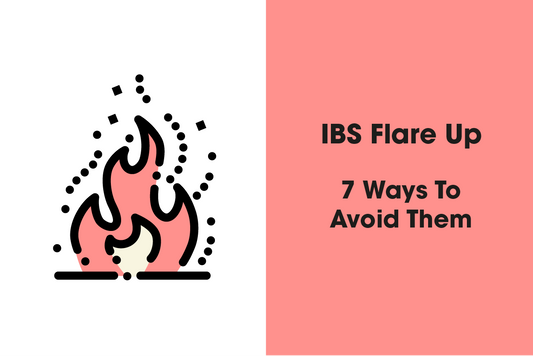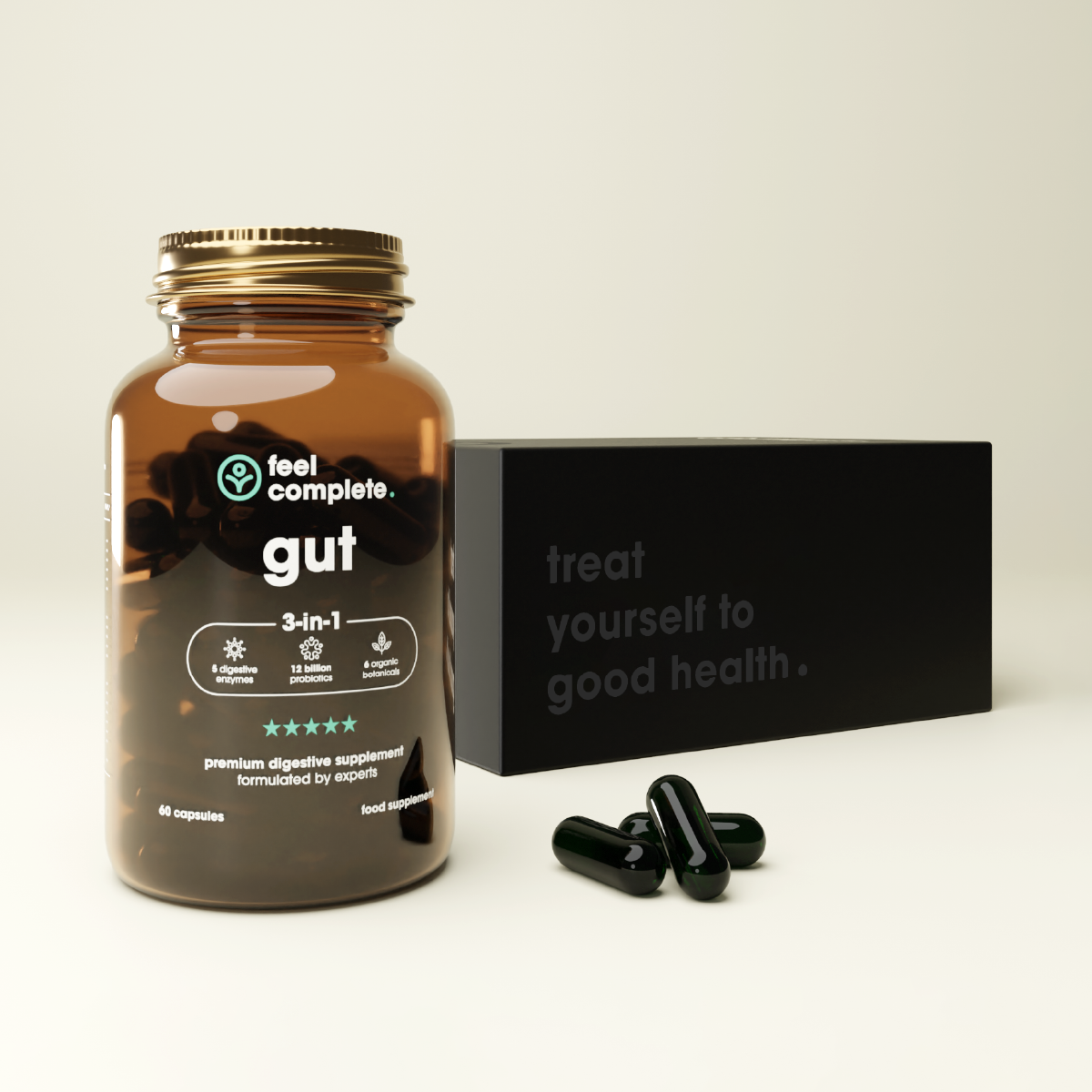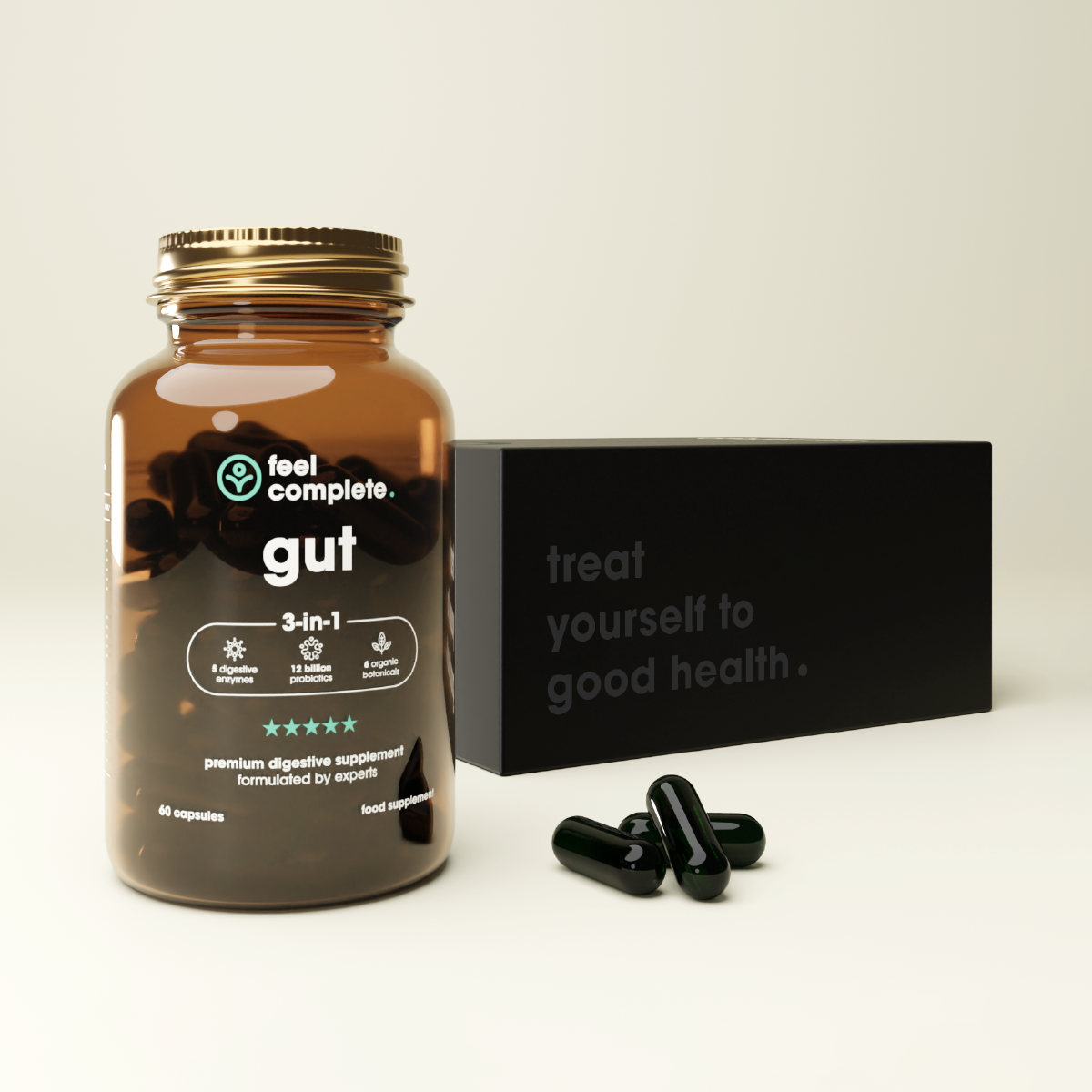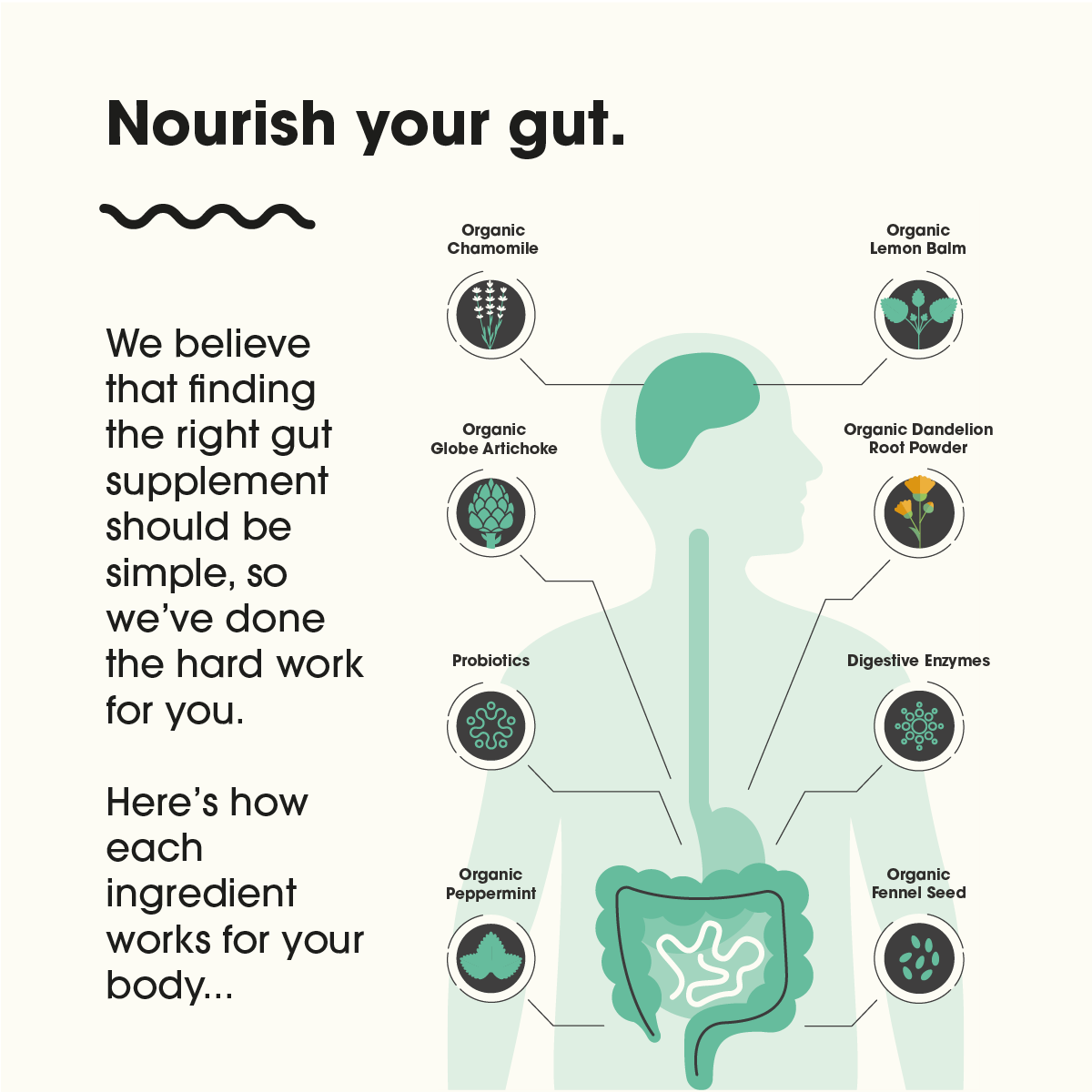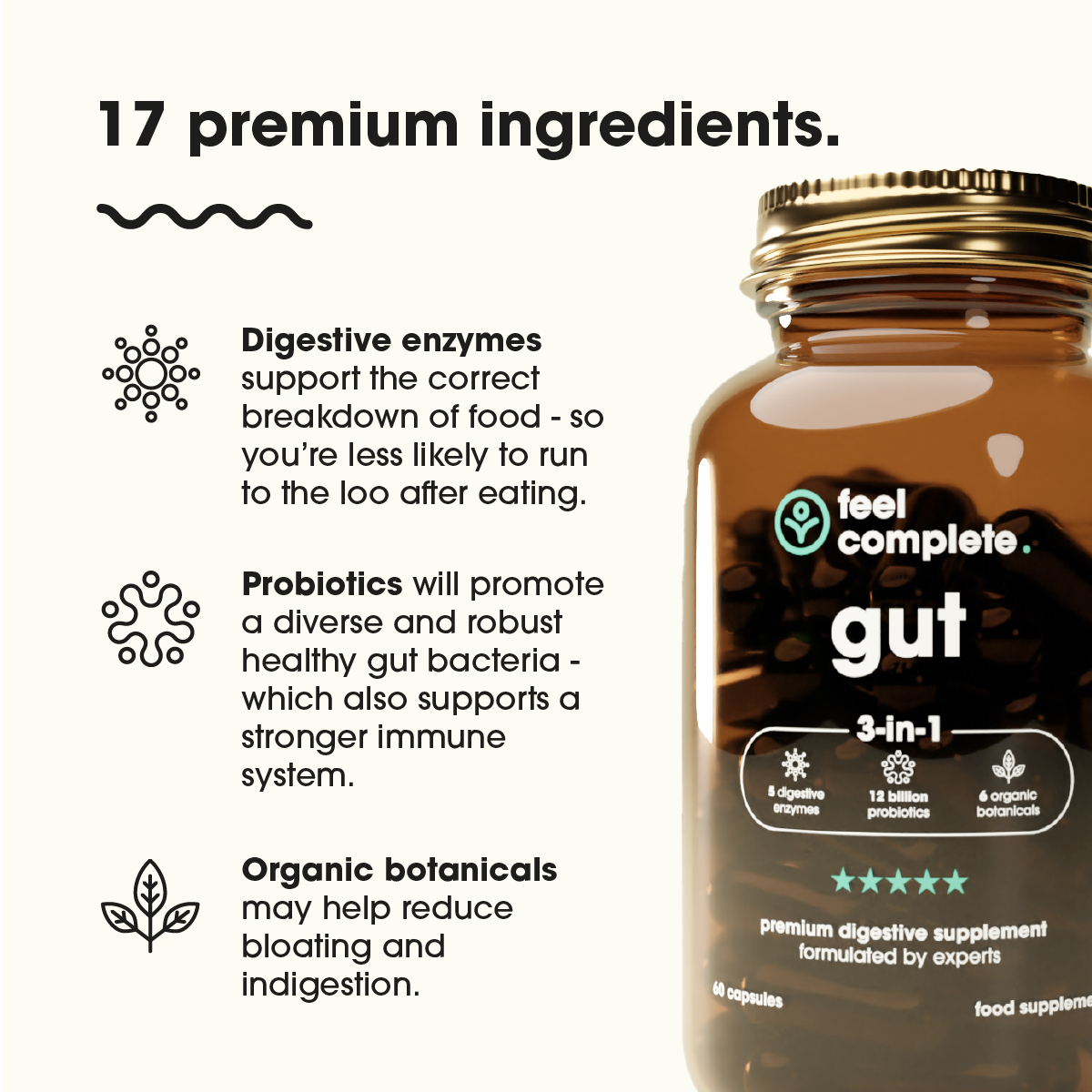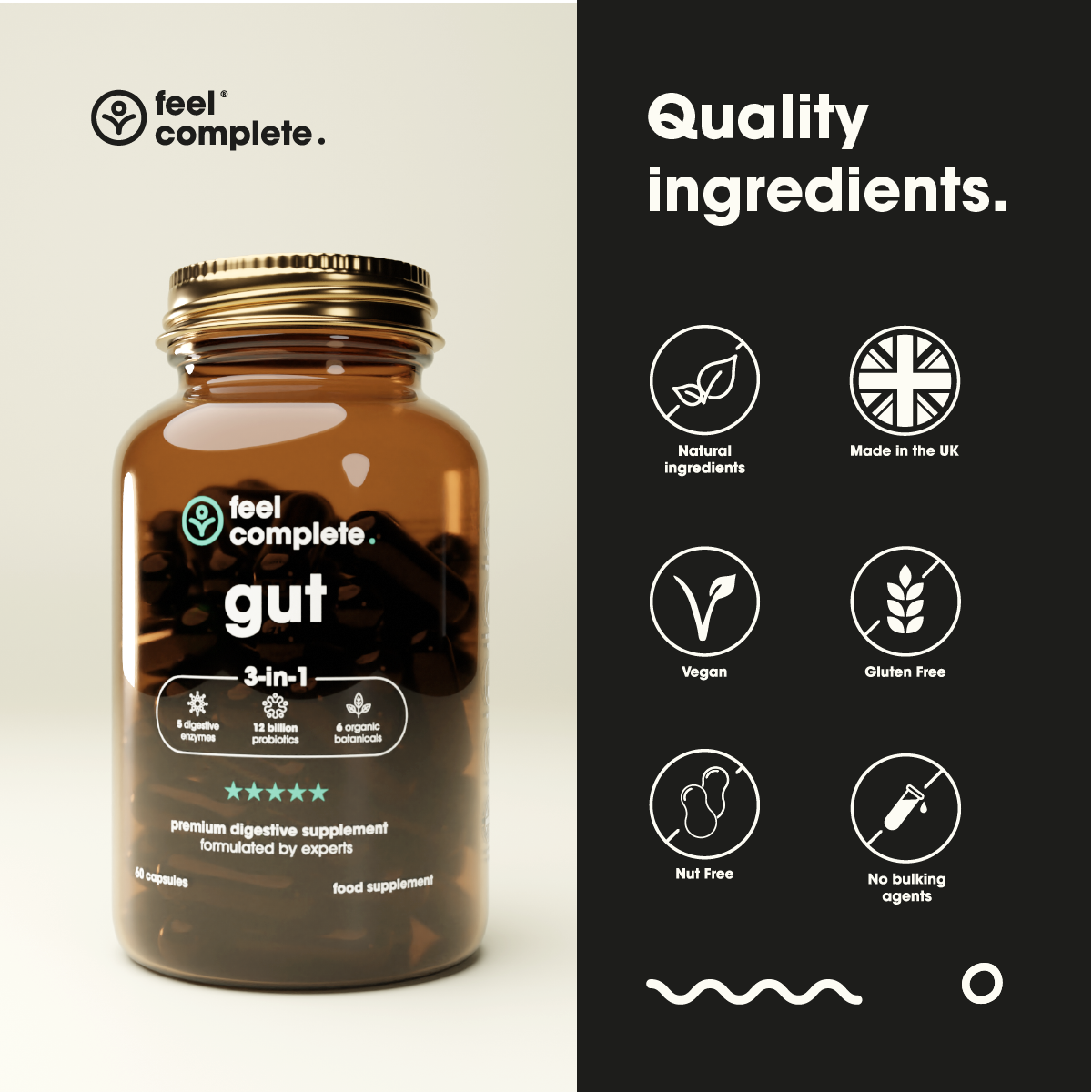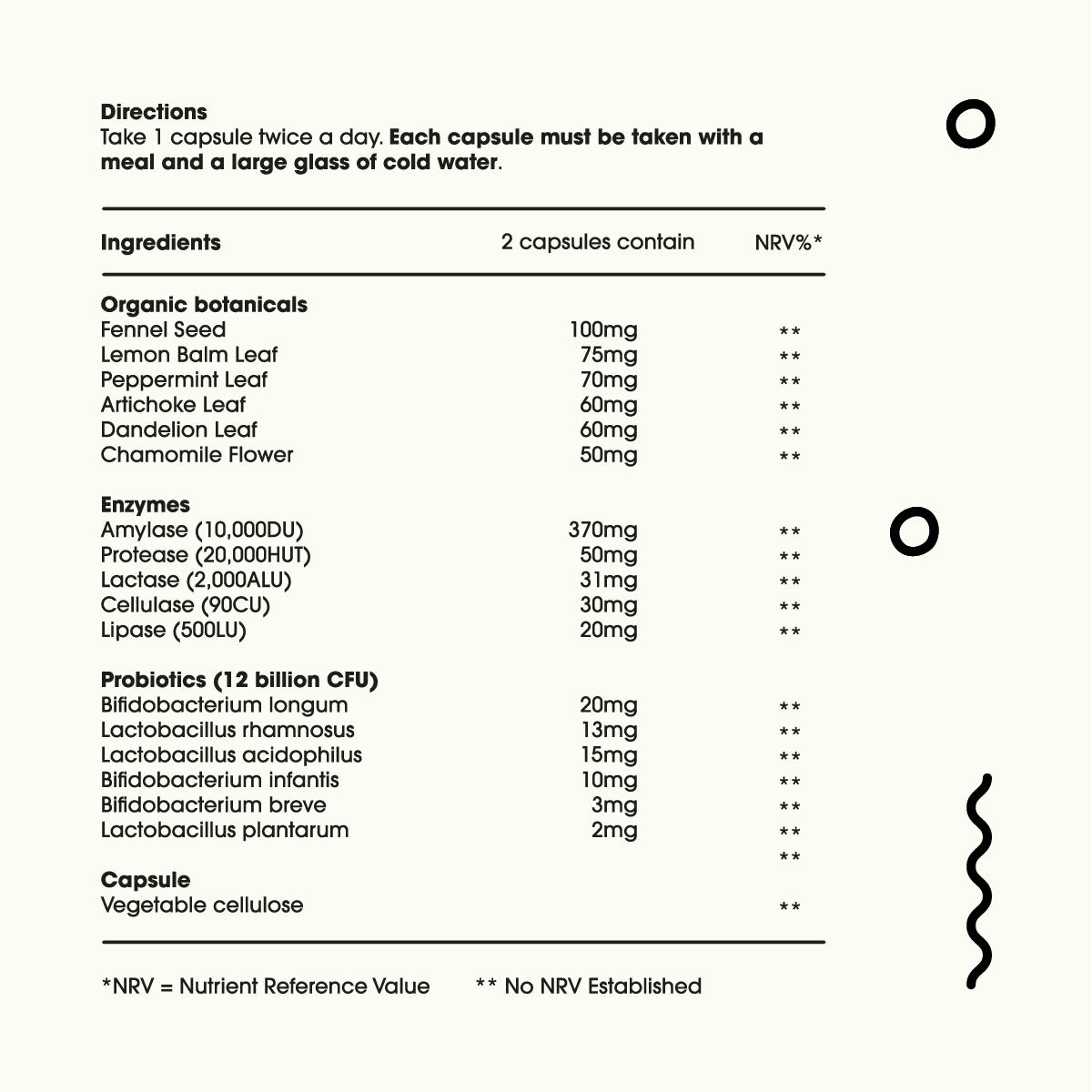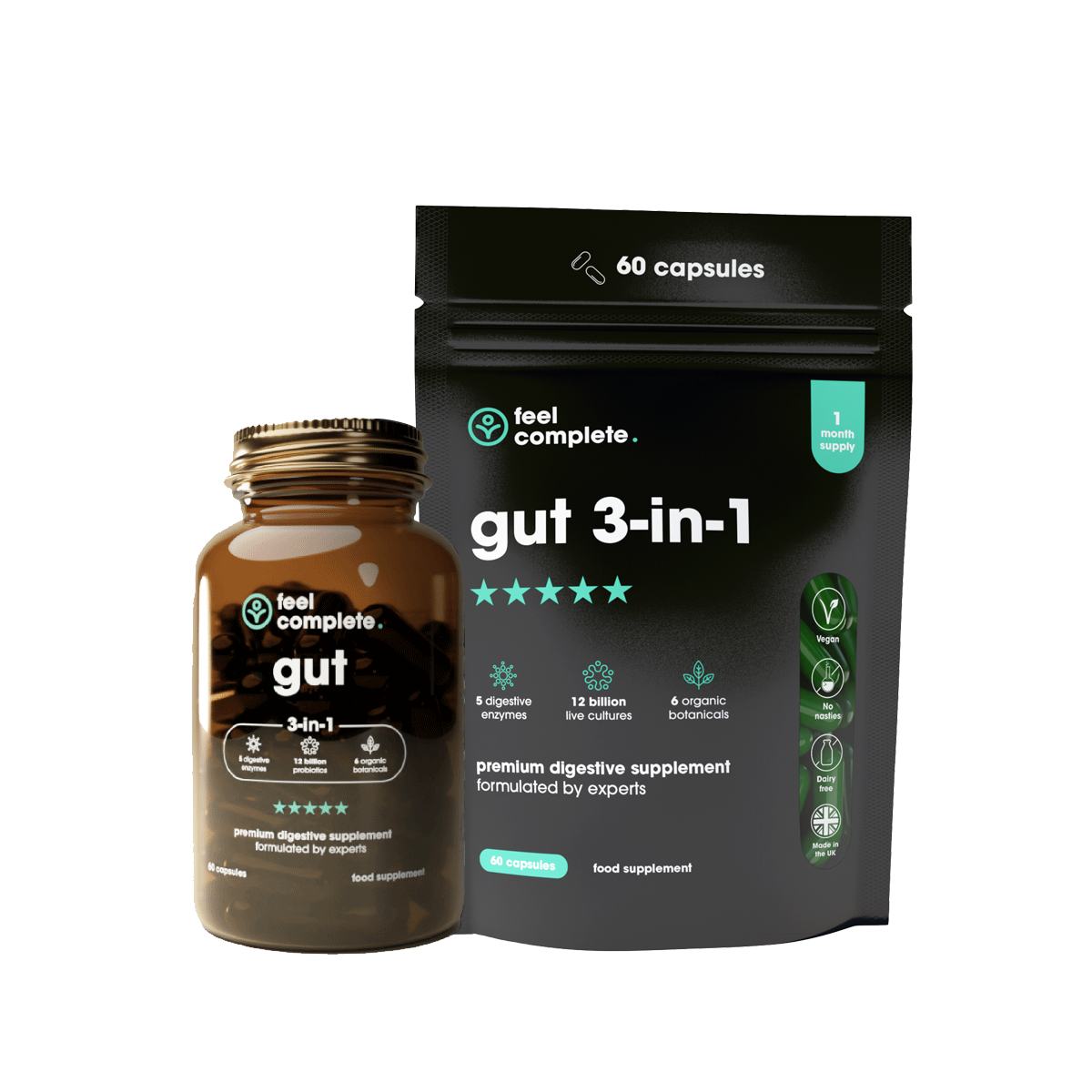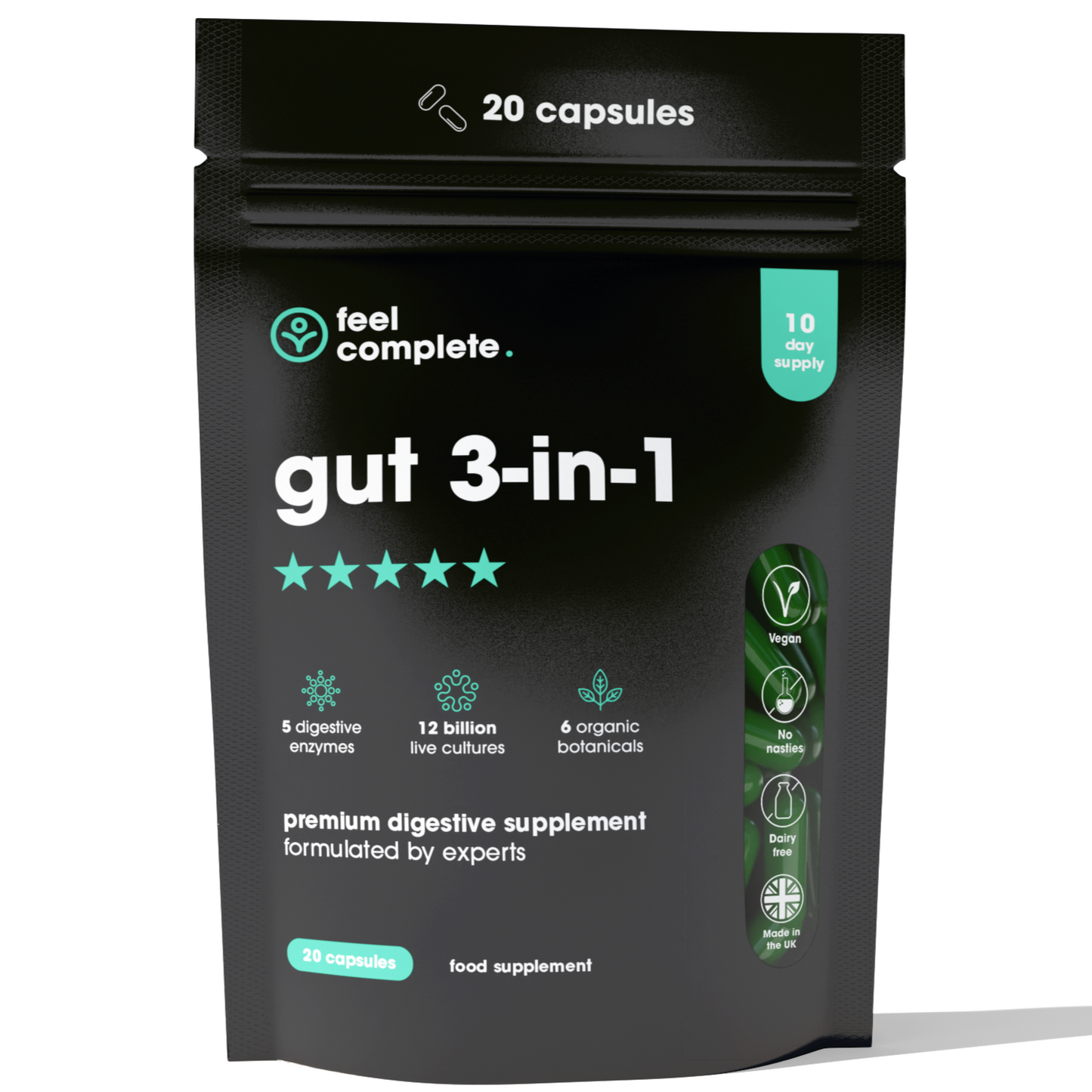Overload, damage to the drive motor, and clogged drain pump are a few things that cause a washing machine to break down. As a complex machine, your body is no different. If you overload it with stressors, your body will work harder for longer.
Over time, the accumulation of stressors will break down your body. In some cases, this can even shorten one's life. We're all familiar with common life stressors such as bills, family conflicts, losing a job, and burnout. Even positive events such as getting married or relocating can be a source of stress for many.
But there's one major contributor to stress we don't often think about – nutrition. That's right – the food we eat can trigger or worsen the symptoms of stress. Wondering how? We'll get to it in a while. For now, just know that with chronic stress, your body and mind can end up paying a high price.
The good news is that like many things, stress can be managed. Learn how stress affects your body and simple steps you can take to take back control.
What is stress?
Broadly speaking, stress is our friend. It helps us adapt to different situations so we can roll with the punches life throws at us. This kind of stress builds resilience and keeps us on our toes. Think about it. If everything in life was plain sailing, we'd all be bored to death! That's not all. Our bodies are designed to respond to different triggers and perform under pressure.
But stress is much more than making us resilient. Stress is the body's way of protecting us. To understand this, imagine being on a nice hike and coming face to face with a bear. In this life/death situation, your body prioritises some functions and minimises others. [*]
When faced with danger (or perceived) danger, your body responds by releasing the stress hormones adrenaline and cortisol. This response causes your:
-
Heart rate and blood pressure to rise
-
Muscles to tense up
-
Reaction time to speed up
-
Breathing to become shorter and faster
Known as the fight-or-flight response, your body tries to protect you from danger so that you can react accordingly. In this case, run for your life!
That said, it's important to know that your body can't differentiate between the stress of facing a wild and dangerous animal, and the stress of say financial issues, work deadlines, or being stuck in traffic. Though these stressors are not life-threatening, your body continues to work hard to protect you from real or perceived threats.
How do you know your chronic stress is causing you health issues? Below are a few telltale signs and symptoms to watch out for.
Signs and symptoms of stress
You already know that left unchecked, stress can lead to many health issues. But what many of us don't know is that the signs and symptoms of stress work behind the scenes before slowly creeping up on you. By the time most people realise, the short-term physical effects of stress have turned into full blown long-term health issues.
Here are some common signs and symptoms of stress:
-
Anxiety, difficulty concentrating, depression, irritability, mood swings, mind fog, apathy, loss of confidence
-
Belly/visceral fat, raised blood sugar and cholesterol levels
-
Decreased hormone production, reduced libido, increased PMS symptoms
-
Digestive issues (constipation, diarrhoea, indigestion, bloating)
-
Dry skin, acne and lowered immune function
-
Emotional eating, overeating, food cravings (comfort foods, carbs, sugar, fat, salt)
-
Hair loss, brittle nails/hair
-
Headaches, fatigue, muscle aches and pains, tension
- Poor sleep quality, nightmares, worries, negatively
- Reduced nutrient absorption
If any of the above signs and symptoms set off alarm bells, it's time to listen to your body. By doing this, you'll learn common stressors and be equipped to deal with life's inevitable demands and challenges in a healthy way.
Remember - stress isn't a feeling; it's a whole system of physical reactions that can cause short-term discomfort and long-term serious health issues. Ready to learn how stress affects your body? Read on!
How stress affects the body
On some level, you likely understand that a lot of stress isn't good for you. But have you ever wondered what stress does to your body? When under chronic stress, different functions in your body can become impaired. Earlier we mentioned how different systems in your body react to threats.
Take your digestive system as an example. A stressful situation suppresses your digestion so that your body can redirect its resources to deal with the threat or perceived threat. [*]
What does this mean for you? Well, short-term stress is fairly harmless. But being stressed day in, day out, can create a lot of digestive issues such as: [*]
-
Bloating
-
Constipation
- Diarrhoea
- Indigestion
But it's not just your digestion stress impacts. Some major health conditions are also linked to stress including: [*] [*] [*]
-
Memory impairment
-
Heart disease
-
Autoimmune disease
-
Depression
-
Obesity
-
Skin conditions
Stress attacks every cell in the body and long exposure to stress prolongs this attack. It's now known that chronic stress leads to adrenal fatigue. What's this exactly? Let's find out!
What is adrenal fatigue?
Adrenal fatigue is a stress-related condition that triggers symptoms such as weakened immunity, brain fog, fatigue, food cravings, and sleep disturbances. Your adrenal glands – consisting of the Adrenal Medulla and Adrenal Cortex – produce different hormones that are essential for your everyday health. The hormones they produce perform different functions such as:
-
Regulating sugar and inflammation
-
Maintaining salt balance in the blood and tissues
-
Distributing fat and protein
-
Reacting to stressors
-
Maintaining blood pressure
The Adrenal Medulla for instance, produces the hormones that are involved in the fight-or-flight response. When overstimulated, this leads to high levels of cortisol in the bloodstream. Left untreated, elevated cortisol levels can harm bodily processes and functions. [*] [*] [*]
Stress and food – the silent link
We mentioned earlier how the link between stress and nutrition isn't widely discussed. Continuous exposure to stress leads to food cravings. But in such situations, we don't think about reaching for a cucumber or an apple!
Think back to the last time you were stressed. Did you have the time or presence of mind to think about your food choices? The answer is most probably no. When we're overwhelmed, we make poor food choices. And this is something we all at one point or another do.
In the long-term, however, this leads to weight gain. Even if you don't overeat or eat the right food, stress can still cause weight gain as it leads to poor sleep. How does this work, exactly? Poor sleep disrupts our hunger and satiety hormones, which in turn influences weight gain.
But did you know that stress can also affect what you eat in a different way? Stress affects how we absorb and store certain nutrients.
We previously mentioned how when stress response kicks in, your body prioritises certain areas over others. Your body redirects important nutrients to the prioritised areas such as your heart, lungs, and muscles. These are nutrients such as B vitamins, vitamin C, magnesium, and zinc.
Your adrenal glands also need vitamin C to produce the stress hormones adrenaline and cortisol. Since chronic stress depletes these important nutrients, it's important that your diet reflects this.
One of the best ways to relieve stress is to optimise your diet. Why is this important? Because poor food choices send stress signals to the brain while good food choices send calming signals to the brain. For instance, eating sugary or junk food raises your stress hormones. [*]
How to reduce stress
Remember what we said earlier about washing machines? Well, like washing machines, your body also comes with its own manual. If you ignore or forget to use your washing machine's manual, the only price you'll pay will be in pounds. But ignore, forget or neglect your body's manual, and you'll end up paying with your health – something you'd want to avoid at all costs!
When stressed, we want to support our body by moving it from a “fight-or-flight” state to a “rest and digest” state. There are a few ways you can do this:
-
Reduce stimulants such as sugar, caffeine, cigarettes, and alcohol
-
Eat fruits and veggies, wholefoods (wholegrain), proteins (eggs, nuts, shellfish, etc.)
-
Gentle exercises and walking in nature can do wonders
-
Eat mindfully – this helps you slow down so you can enjoy your food. Chewing also helps produce digestive enzymes that support nutrient absorption
-
Reward yourself – without food. Time with loved ones, a nice walk, a warm bath, etc.
There are many safe and effective ways to help you manage stress. While lifestyle factors and our response to stress are important, we'll focus on one of the most important cornerstones of reducing stress - nutrition.
How nutritional therapy can help
You've heard of therapy, but what exactly is nutritional therapy? Looking beyond its fancy name, nutritional therapy is a holistic and evidence-based approach based on maximising a person's health potential in a bio-individual way. This approach focuses on creating nutrition and lifestyle plans that are personalised, and promotes wholesome, unprocessed foods as the way to achieve optimal health.
Unlike the one-size-fits-all approach of fad diets and healthcare, nutritional therapy listens to you and your body. Why do you have a particular symptom? Why does eating x or y make you feel this or that way? By understanding your body, nutritional therapy can – through the help of your own nutritionist – use the therapeutic effects of clean and wholesome foods for specific health conditions.
Why not work with one of our experts on regular basis to learn how to manage the micro and major stressors in your life? All in a healthy and sustainable way. Get regular coaching here.
Using the right nutrients to support your body's specific needs will ensure that you have one thing less to worry about in life. Here are some powerful nutrients you should be consuming.
Stress-reducing herbs
Ashwagandha – An ancient herb known for reducing cortisol levels, which is important for managing stress
Lemon Balm – A herb that's been traditionally used to improve cognitive and mood functions. It's been shown to reduce insomnia and promotes a sense of calmness. Lemon balm also helps with digestive symptoms such as excess gas, which is why you can find it in some gut health supplements. Our 3-1 premium digestive enzymes supplement contains this soothing plant.
L-Glutamine - Stress depletes levels of L-Glutamine in the body. This in turn leaves your gut lining vulnerable
L-Tryptophan – An essential amino acid that's shown to promote healthier and better sleep
Magnesium – Has many benefits including promoting longer undisturbed sleep, fights overnight muscle twitches, and is gentle on digestion
Rhodiola Rosea – Reduces stress, fights fatigue, lowers symptoms of depression, and boosts brain functions
With these powerful herbs, you can find ways to naturally and successfully manage stress and feel calmer as a result.
Bottom line
As a living and breathing human being, you'll always experience one form of stress or another. Learning about your personal triggers as well as ways to reduce stress can help you feel great about yourself and life.
Don't forget – stress management isn't about popping a pill or silencing your body's cry for help. There's no pill for helping you manage stress just as there's no pill for happiness. What you want to do is learn to work with your body. It knows what it's doing, and if you relax, it will relax too!






